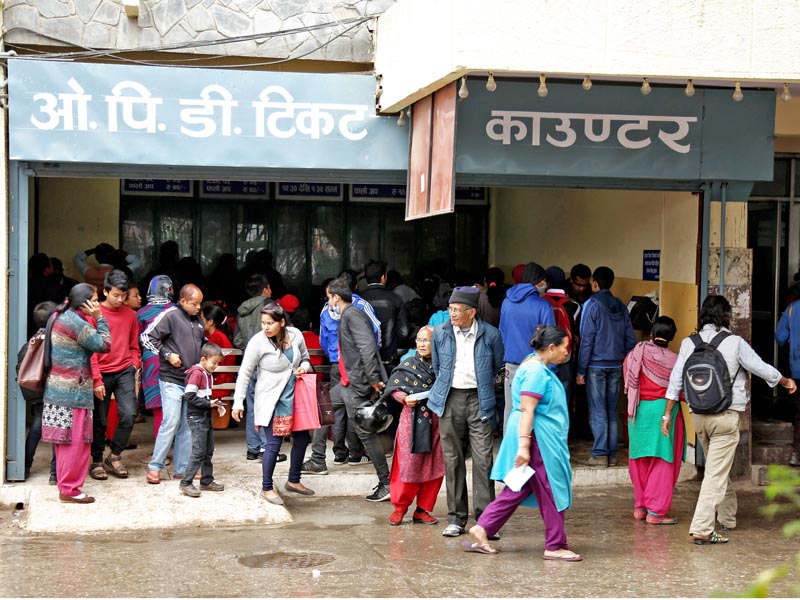Parliamentary panel report on hospitals lacks substance
Kathmandu, February 5
A parliamentary sub-committee has wrapped up its month-long study of status of hospitals in Kathmandu making a sweeping statement that leading healthcare service providers in the country’s capital have not met government-set standards or criteria without providing evidence to back its claim.
The study was conducted by a seven-member sub-panel under the parliamentary Education and Health Committee. The sub-panel was led by Khaga Raj Adhikari, a former health minister. Other members of the sub-panel included former health ministers Uma Kant Chaudhary and Gagan Thapa.
Despite having such high-profile personalities, the sub-committee has prepared a mere seven-page report, of which two pages have been dedicated to explaining the rationale for conducting the study. The report includes a list of 20 hospitals based in Kathmandu, including renowned ones such as Grande Hospital, B&B Hospital, Alka Hospital, Nepal Mediciti Hospital and Norvic Hospital. But the sub-committee members did not conduct on-site inspections of the private hospitals.
Despite the sub-committee’s failure to visit all the hospitals mentioned in the report, its coordinator Adhikari today claimed most of the healthcare service providers in Kathmandu did not meet government-set standards or criteria. This statement made by Adhikari, however, does not feature in the report. Yet the sub-committee has issued a 17-point directive demanding reforms in all the hospitals in Kathmandu.
Surprisingly, the Education and Health Committee headed by Chairperson Jay Puri Gharti has endorsed the report and the directive it prepared. What’s more, lawmakers, who are members of the committee, also praised the sub-panel members for putting in efforts to conduct the study and prepare the report and directives.
“If parliamentary panels start producing such useless reports, it will tarnish the reputation of House committees and lawmakers,” a former parliamentary secretariat secretary said on condition of anonymity, adding, “Reports of parliamentary committees should be evidence-based for which in-depth studies must be conducted.”
Lawmakers are often criticised for not doing adequate research before attending House committee meetings. As a result, they struggle to understand the topics that are discussed in those meetings. “This leads to the production of reports that are inferior in quality. So, problems are not properly addressed,” said the former secretary.
The parliamentary sub-committee was initially given three weeks to conduct this study. After the panel could not meet the deadline, it was given 15 additional days to complete its work.
In these 36 days, the members of the sub-committee conducted on-site inspection of Ayurveda and Alternative Medicine Department, the Department of Drugs Administration, the Department of Health Services, Shukraraj Tropical and Infectious Disease Hospital, Kanti Children’s Hospital, Bir Hospital, Patan Hospital, Civil Servant’s Hospital, Shahid Gangalal National Heart Centre, Nepali Army Hospital, Nepal Police Hospital, Armed Police Hospital and Human Organ Transplant Centre.
These institutions, according to the sub-panel report, lacked human resources, proper infrastructure and equipment. For example, rooms of Shukraraj Tropical and Infectious Disease Hospital, the sub-panel report states, were leaking, while Kanti Children’s Hospital did not have an MRI scanner. On the other hand, expensive equipment at Bir Hospital was lying defunct because the procurement law bars state-owned institutions from investing over 30 per cent of the equipment’s cost on spare parts.
The report, however, does not say anything about the status of Patan Hospital, Civil Servants’ Hospital, Shahid Gangalal National Heart Centre, Nepal Army Hospital, Nepal Police Hospital, Armed Police Hospital and Human Organ Transplant Centre, although the sub-committee members had visited them.
“The panel was given very short time to prepare the report. So, not all issues have been covered. We’ll do a follow-up study,” said Gharti.






